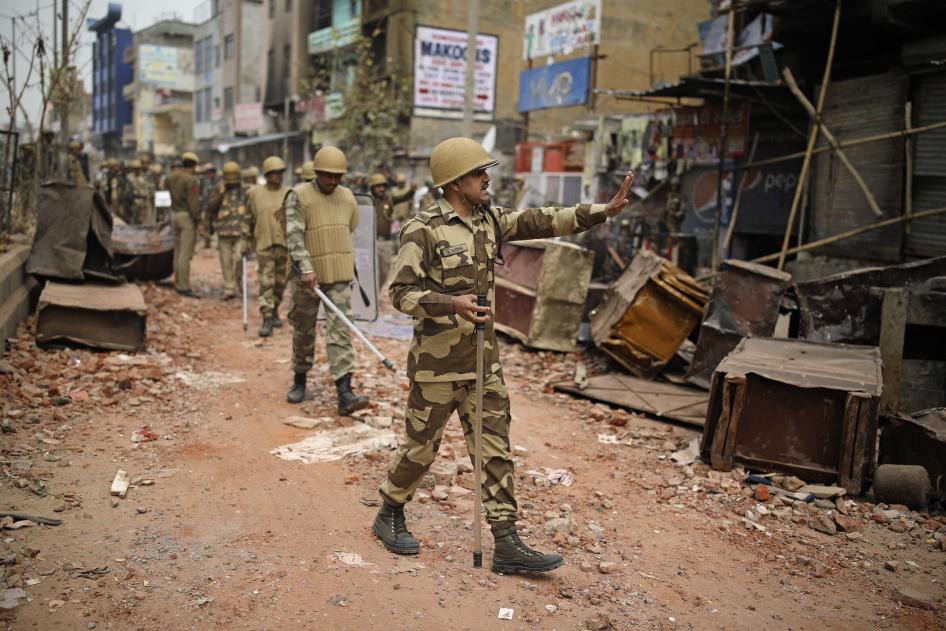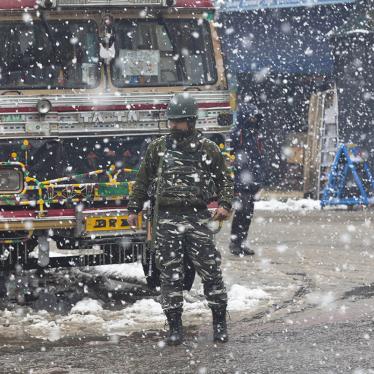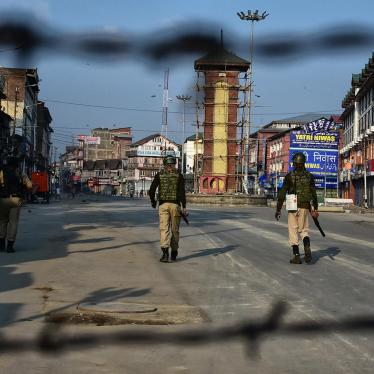The Bharatiya Janata Party-led government of Prime Minister Narendra Modi is facing increasing international criticism over its discriminatory policies and actions. Asked recently if India was losing friends over its decisions, Foreign Minister S Jaishankar said, “Maybe we’re getting to know who our friends really are.”
Other BJP leaders have likewise failed to condemn violent and abusive actions by party supporters. After communal clashes and retaliatory mob attacks by BJP supporters in Delhi in February led to the death of at least 53 people, most of them Muslim, Nitin Gadkari, a senior party leader, did not criticise his party colleagues accused of inciting violence. He said only that “some of the sentences are misunderstood” and instead blamed the media that want to “create more quarrels”.
An official spokesman described allegations that the Modi government’s decisions had inflamed religious violence as “factually inaccurate and misleading”.
Supporters of the BJP’s Hindu nationalist government need to come to terms with the reality that the criticism, including from international friends, is neither misleading nor inaccurate. The government’s divisive policies and acts of violence by its supporters have indeed resulted in severe human rights abuses.
Since the Modi government first took office in 2014, its supporters have targeted Christians, Dalits, Adivasis and members of civil society. But it is Muslims that have been particularly at risk.
Cow Vigilantes
At least 50 people have died and more than 250 have been injured in mob attacks by BJP supporters since May 2015 amid rumors that the victims traded or killed cows for beef. The government has also deported Rohingya Muslim refugees to Myanmar despite the risks to their lives and security.
In August, a few months after winning a second term, the Modi government revoked the constitutional autonomy of India’s only Muslim-majority state of Jammu and Kashmir and split it into two federally governed territories. The authorities arbitrarily detained thousands of people and cut off phone and internet connections in anticipation of protests. Several Kashmiri leaders, including three former elected chief ministers, are still in custody.
Hundreds of thousands of Indians have protested against India’s discriminatory new citizenship law and verification process. The Citizenship Amendment Act, for the first time in India, makes religion the basis for granting citizenship. The act, coupled with a planned nationwide citizenship verification process to identify “illegal migrants” has led to fears that many Indian Muslims will be stripped of their citizenship rights. The United Nations high commissioner for human rights, Michelle Bachelet, filed an intervention in India’s Supreme Court challenging the constitutionality of the law.
Official Bias
The police and other authorities stand accused of repeatedly failing in their duties and of demonstrating bias against Muslim and other anti-government protesters. Police have failed to protect people attacked by BJP supporters, and there are witness accounts that some policemen even joined in the Delhi attacks on Muslims. The authorities have cracked down on peaceful critics of the government but failed to intervene in violence by BJP members and supporters.
In Uttar Pradesh, where at least 19 people died during protests in December, government authorities plastered photographs of peaceful activists and protesters on billboards, placing them at risk of attack, leading to intervention by the courts, which found the actions unlawful.
When activists appealed to the courts against alleged hate speech by some BJP members ahead of violent attacks against Muslims in Delhi, the solicitor general, appearing for the police, accused a well-known rights activist, Harsh Mander instead, for his speeches. Criticising the state response, Mander’s lawyer said he was concerned that the government “is willing to shoot the messenger, while not taking action against the real perpetrators”.
The government needs to respond in support of human rights for all instead of resorting to Hindu majoritarian victimhood. This means publicly discouraging claims by BJP leaders that encourage violence and discrimination including that minorities pose a threat to Indian security and to the majority population.
Gujarat Riots
Modi was previously investigated and internationally criticised for his role during violence against Muslims in Gujarat in 2002, when he was chief minister. The investigation found no “prosecutable evidence” and Modi, went on to run for the prime minister’s office in 2014. “If something bad happens anywhere, it is natural to be sad,” he said about the violence to Reuters during the campaign.
In his inauguration speech when he won his second term in May 2019, Modi had called for protecting minorities and warned BJP lawmakers not to make irresponsible comments, saying that the country will not forgive such transgressions.
His government should now change course, publicly reassure Muslims that their rights as citizens will not be compromised, reverse abusive policies in Jammu and Kashmir and around citizenship verification, and hold to account all those responsible for violations including both police and party supporters. The way forward to address criticism is to reverse poor decisions, not reject the advice of friends.










